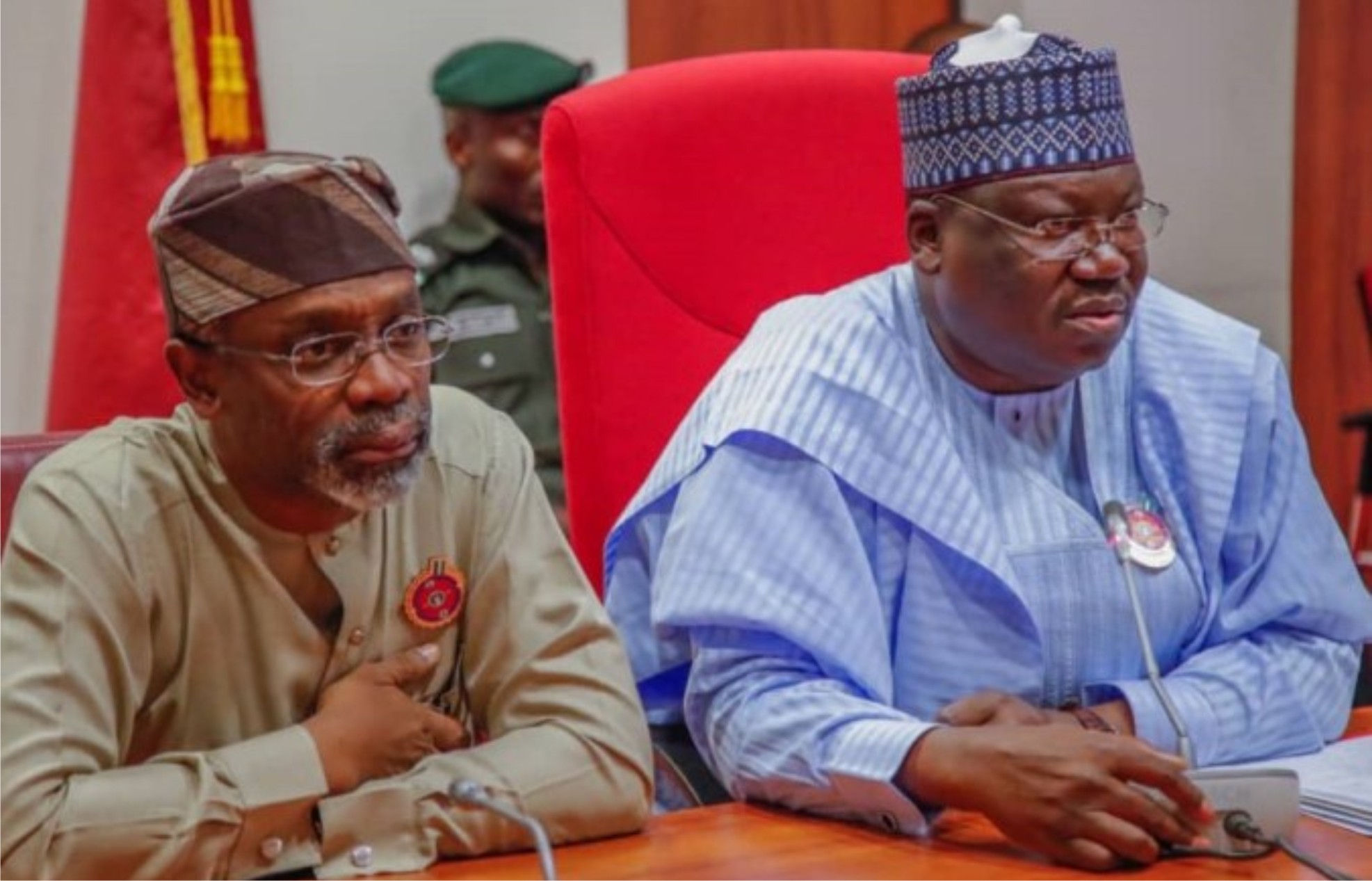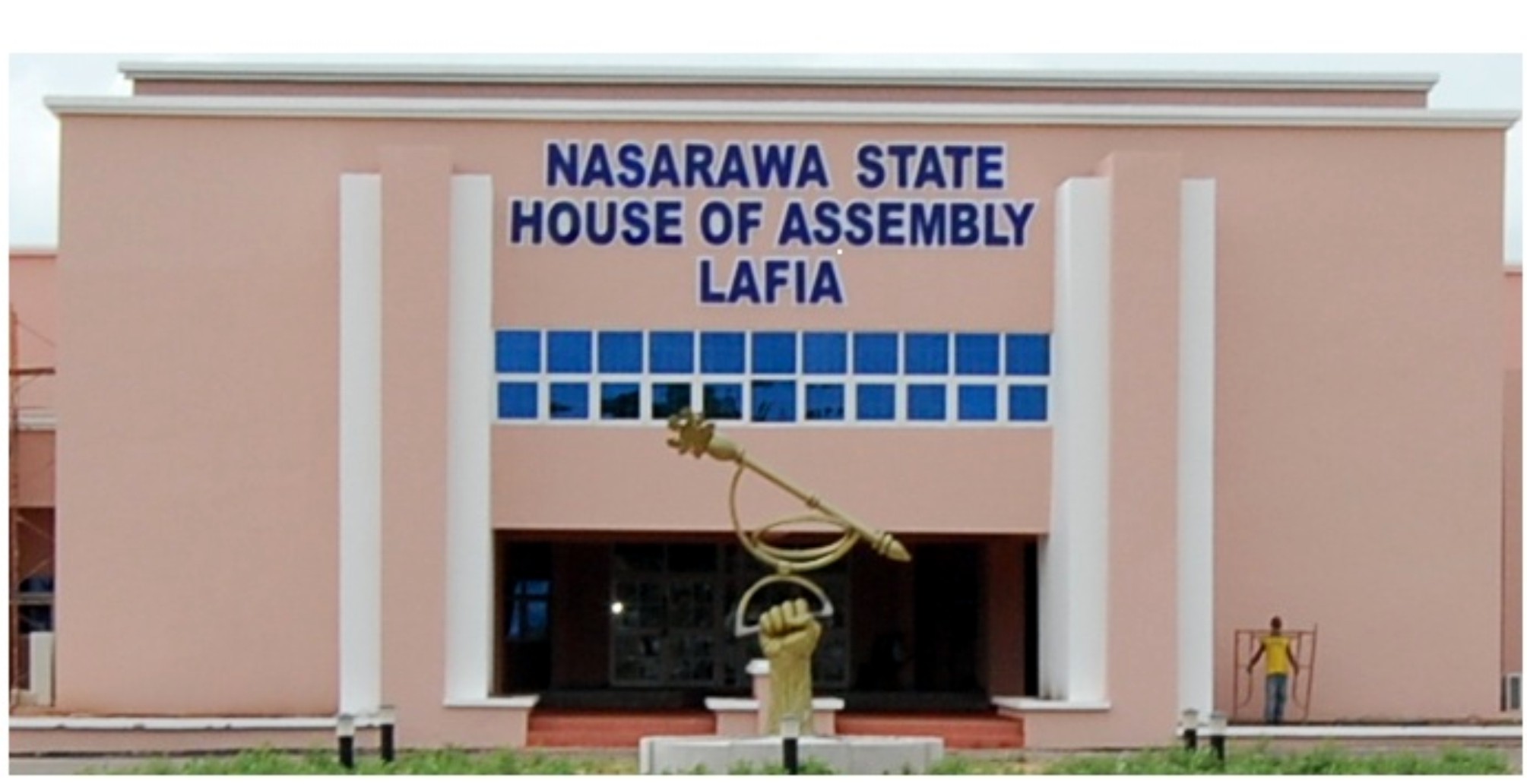Politics
NASS Leadership Intervenes In Ex-Legislative Aides’ Severance Pay Delay

The leadership of the Senate and House of Representatives last Monday, waded into the non-payment of severance allowances for legislative aides who served in the 8th National Assembly between 2015 and 2019. President of the Senate, Ahmad Lawan and Speaker of House of Representatives, Femi Gbajabiamila, met the relevant agencies of government led by the Minister of Finance, Budget and National Planning, Zainab Ahmed.
Special Assistant on Press to Ahmad Ezrel Tabiowo in a statement said the meeting, which was held behind closed doors, was attended by principal officers of the Senate and House of Representatives.
Also present at the meeting was the Director-General of the Budget Office of the Federation, Ben Akabueze.
Lawan, at the meeting said the essence was to ensure the payment of severance allowances for legislative aides who worked between 2015 and 2019.
“The tenure of legislative aides employed by the National Assembly Commission and posted to members of the National Assembly is tied to the tenure of the National Assembly.
“ Therefore, they are entitled to severance allowance,” he said.
According to Lawan, prior to the intervention by both chambers, the senate leadership had a meeting with the management of the National Assembly and the Revenue Mobilization Allocation and Fiscal Commission (RMAFC).
Lawan said the meeting with RMAFC identified some difficulties on who was supposed to pay the severance allowances to aides who served within the period.
Lawan said: “It is only fair that we give them what is due to them.
“We realise there was need to bring on board for this discussion the Ministry of Finance, Budget and National Planning and the National Assembly Service Commission”.
“So that we discuss and finalise where the source of the severance allowance for the legislative aides will be.
“And the presence of both chambers here tells us that this is a matter that affects the entire National Assembly” Lawan added.
Politics
Nasarawa Speaker Advocates Conducive Executive/Legislature Relations

The Speaker made the call on Wednesday while hosting councillors from the 13 local government areas of the State in his residence in Lafia, the state capital.
Rt Hon. Jatau said that a good working relationship among the arms of government at the council level was key to development, hence, the need for his call in that direction.
He appreciated the councillors for condoling with him over the death of his younger sister, Hajaratu Jatau, and prayed to God to bless them abundantly.
“I started as a councillor, and today I am the Speaker. There is the need for a good working relationship between you and the elected chairmen for development to thrive at the grassroots. It is in view of this that I want to call on you to give your elected chairmen all the necessary and needed support to succeed. For development to thrive at the grassroots, you must embrace one another and see yourselves as team players,” the Speaker said.
Rt Hon. Jatau also called on them to coexist peacefully among themselves and continue to drum up support for Governor Abdullahi Sule’s administration to succeed.
Besides, he assured them that the state government would soon organise training for them to deliver effective service.
Rt Hon. Jatau also assured them that the state government would pay them their furniture allowance, as well as other benefits, to enhance their legislative work.
Earlier, the chairman of the Nasarawa State Councillors Forum, Mohammed Madaki, who is the Leader of Lafia LGA Legislative Assembly, said that the visit was to identify with the Speaker over the death of his sister.
The leader of the delegation urged the Speaker to see the death of his sister as an act of God and bear the irreplaceable loss.
Mr Madaki assured the Speaker of their loyalty and support at all times.
The chairman, however, appealed to the Speaker to intervene in the training of the councillors as well as the payment of their furniture allowance.
Politics
INEC Trains Political Parties Officials On ICNP Use Ahead By-Elections

To enhance the capacity of political parties and minimise procedural errors in candidate nominations, the Independent National Electoral Commission (INEC) organised a two-day refresher training workshop on using its Candidate Nomination Portal (CNP) for party officials on Wednesday.
Held at the INEC Headquarters in Abuja, the training brought together key representatives from registered political parties, some of whom had previously been trained ahead of the 2023 general elections.
The workshop aimed to consolidate achievements from previous cycles and ensure a more efficient, transparent, and technologically seamless nomination process in preparation for upcoming by-elections and the Federal Capital Territory Area Council elections.
In her welcome address, the National Commissioner and Chairperson of the Legal Services, Clearance and Complaints Committee (LSC&CC), Mrs May Agbamuche-Mbu, emphasised the importance of accurate and timely nominations in the electoral process.
“Nomination of candidates is not only a statutory obligation as provided in Section 29 of the Electoral Act, 2022, but it is the very foundation upon which elections are conducted,” she stated, adding that “An error in the submission of personal particulars of candidates by political parties can be potentially detrimental to both the party and its candidate.”
She acknowledged that despite progress with the CNP in reducing paperwork and improving compliance, political parties still faced challenges such as incomplete form submissions, improper document attachments, and frequent turnover of personnel managing the nomination process.
“This refresher training is designed to bridge those gaps and ensure that both returning and newly appointed party officials have the knowledge and skills necessary for a smooth nomination process,” she said.
The Assistant Director in the Legal Drafting and Clearance Department, Mr Samuel Omale, outlined the purpose and strategic focus of the refresher training. According to him, the workshop was designed not just as a routine exercise, but as a timely intervention to deepen the capacity of political party officials ahead of upcoming FCT and by-elections.
“The objective,” he explained, “is to refresh political parties on the approved Guidelines for the Nomination of Candidates as outlined in the Electoral Act, 2022, while equipping them with practical knowledge of the nomination process.”
He further elaborated that the training sought to enhance parties’ familiarity with the Commission’s internal procedures, particularly through live demonstrations on how to make timely and correct submissions via the INEC Candidate Nomination Portal (ICNP).
In addition to addressing common areas of confusion and past mistakes, the sessions also provided space for open dialogue between the Commission and party representatives an opportunity to ask questions, seek clarifications, and find common ground.
Mr Omale expressed optimism about the expected outcomes of the exercise, citing better understanding of the portal, improved accuracy in submissions, and the establishment of a more collaborative framework between INEC and political parties as key deliverables.
“Ultimately,” he said, “this is about ensuring that we reduce errors and build confidence in the nomination process going forward.”
The initiative reaffirms INEC’s commitment to using technology to strengthen electoral integrity, improve compliance, and build capacity among political actors to ensure credible and inclusive elections.
Politics
Natasha’s Counsel Writes Senate Over Court Judgment
The legal counsel to the Senator representing Kogi Central, Senator Natasha Akpoti-Uduaghan, has faulted the National Assembly’s interpretation of a Federal High Court’s judgment which ordered her reinstatement to the Senate, insisting that the judgment was binding and must be complied with in full.
In a rejoinder dated July 14, and addressed to the Director of Litigation and Counselling, Legal Services Directorate of the National Assembly, Mr Charles Yoila, Sen. Akpoti-Uduaghan’s legal team, led by Mr Michael Numa (SAN), accused the Senate of misinterpreting the decision of the Federal High Court in Suit No: FHC/ABJ/CS/384/2025 — Senator Natasha Akpoti-Uduaghan v. Clerk of National Assembly & 3 Ors.
The lawyers responded to an earlier correspondence from the National Assembly dated the same day, in which the Senate purportedly treated the court’s judgment as advisory. They argued that the enrolled judgment was not suggestive, but declaratory and mandatory in nature.
“The preamble of the enrolled order begins with the words ‘it is hereby ordered’ and proceeds to enumerate 12 distinct and substantive orders,” the letter stated.
“Of particular relevance is Order 12 which directed that the Senate should recall the plaintiff. While the word ‘should’ is used, the context of the full judgment supports a binding construction”, it argued.
The legal team noted that the plaintiff had sought, among other reliefs, an order nullifying the recommendations and findings of the Senate Committee on Ethics, Privileges and Public Petitions, which had led to her suspension. They further referenced that the plaintiff’s application for a mandatory injunction was heard alongside the substantive matter and was incorporated into the composite judgment.
Referencing Order 4 of the enrolled judgment, Mr Numa maintained that the court had adjudged the suspension of Sen. Akpoti-Uduaghan as unconstitutional, excessive, and ultra vires.
He contended that, pursuant to Section 1(3) of the 1999 Constitution (as amended), the Senate’s action was null and void to the extent of its inconsistency with constitutional provisions.
The letter made reference to Section 287(3) of the Constitution, which mandates all authorities and persons to give effect to the decisions of courts. It also invoked Section 318, which defines a court decision to include judgment, decree, order, conviction, sentence, or recommendation.
To reinforce the legal position, the letter cited *Ecobank (Nig.) Ltd v. Tempo Energy (Nig.) Ltd* (2025) 9 NWLR (Pt. 1994) 125 at 144–145, where the Supreme Court held that recommendations arising from adjudicated disputes may constitute binding judicial acts.
“The judgment in this case falls squarely within the definition of enforceable judicial determinations,” Mr Numa argued, urging the Legal Services Directorate to revisit the enrolled order and advise the Senate to comply accordingly.
He emphasised that compliance with the judgment was not optional or discretionary, but a constitutional obligation binding on the Senate under the principle of separation of powers and judicial supremacy.
In a final note, the legal team informed the National Assembly that Sen. Akpoti-Uduaghan intends to resume her legislative duties on July 22, especially in light of the recent passing of former President Muhammadu Buhari, describing the development as a moment of national transition.
The letter concluded with a caution that the embattled senator reserves the right to pursue all legal avenues to enforce her rights should the Senate continue to defy the judgment.
This development sets the tone for a potential legal showdown between the judiciary and the legislature over the enforcement of court orders, especially in politically sensitive matters involving elected representatives.
-

 Politics2 hours ago
Politics2 hours agoINEC Trains Political Parties Officials On ICNP Use Ahead By-Elections
-
Politics3 hours ago
Bayelsa APC Hails Late Buhari As Change Agent In Nigerian Politics
-
Niger Delta3 hours ago
Police Rescue Kidnap Victim, Recover Pistol In A’Ibom
-
News1 hour ago
FG Renames University of Maiduguri After Buhari …As Tinubu Pours Encomiums On Late President
-

 Business3 hours ago
Business3 hours agoReplace Nipa Palms With Mangroove In Ogoni, Group Urges FG, HYPREP
-
Niger Delta3 hours ago
C’River Hands Over Rubber Plantation to Private Company
-
City Crime1 hour ago
RSG Tasks Federal Government On Maternal Deaths
-

 Business3 hours ago
Business3 hours agoIndustry Leaders Defend Local Content, … Rally Behind NCDMB

